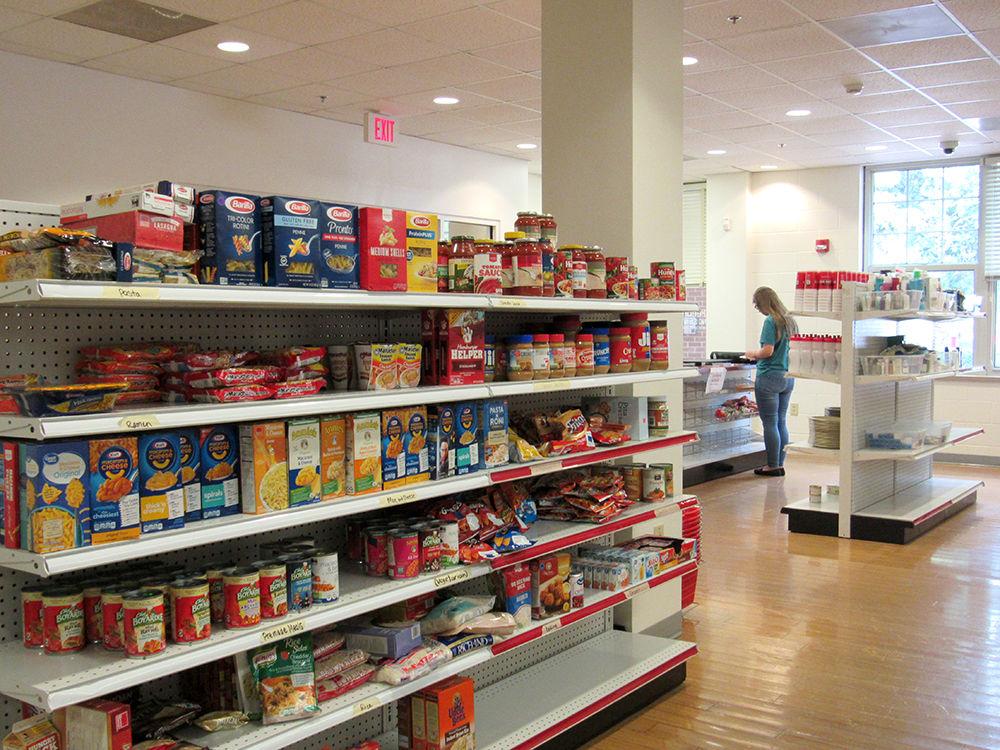As the days get colder, darker and shorter, people are looking for a warm meal and the time to stock up on sustenance and supplies for the winter. Fortunately, there are some NC State students and graduates who are looking to provide warm food and more as we head into these winter months.
In downtown Raleigh, the nonprofit restaurant A Place At The Table is providing people with take-out and curbside meals while their inside seating remains closed because of COVID-19. A Place At The Table is a restaurant with a unique payment plan. They allow their clients to pay more for their food, pay the exact price, pay less for a meal or volunteer in exchange for the meal.
Emily Weidman, the manager of volunteer engagement at A Place At The Table, said the restaurant heavily relies on the community in order to stay open.
“We have a ton of supporters in the community who still dine with us and donate, pay it forward, buy our tokens, donate on a regular basis, even those who haven’t been able to come and dine with us during COVID have still been donating,” Weidman said. “So we have a ton of supporters which has been really helpful and allowed us to stay open.”
The idea for A Place At The Table was created by Maggie Kane, an NC State alumna, who came up with the idea while taking friends who were struggling with homelessness and food insecurity to restaurants. Weidman explained Kane’s thought process.
“Many folks have the privilege to choose where you want to go out to dinner, every single night — choose where you want to go to grab lunch,” Weidman said. “So [Kane] started taking some of these folks, some of her friends, out to eat, and they were choosing places like Golden Corral where there was a lot of choice, they felt welcomed, they were greeted at the door, they had dignity as a customer when dining with them.”
A Place At The Table’s model of quality dining for everyone has proven to be a popular way of providing people with dignity, choice and food in Raleigh, and the demand for their services has only increased with COVID-19. Weidman said the pre-COVID-19 average of free meals was between 40 and 60 per day. Since COVID-19, the restaurant is averaging about 300 or more free meals per day.
On NC State’s campus, a similar experience of increased need during the pandemic and winter months plays out at the nonprofit Feed The Pack. Feed The Pack is a nonprofit organization that was started in 2012 by students and staff at NC State to provide for those experiencing food insecurity on campus. Rose Krebs, executive director of Feed The Pack, described the increase in need for the food support.
“So in total this year, from January until September, we’ve had 6,258 visits,” Krebs said. “Last year, we had only 3,904. Last year, we gave out just under 41,000 pounds of food, and this year we’ve given out just over 83,000, from January to [September].”
Feed The Pack has also increased the products it has within its pantry, which now includes fresh produce and hygienic products, as well as nonperishable items. This increase in products that can be provided via the Feed The Pack food pantry is often due to partnerships formed with other nonprofit organizations, including A Place At The Table.
Krebs described the relationship between Feed the Pack and A Place at the Table.
“We’ve worked with Maggie Kane, who is their founder and director,” Krebs said. “They often host food drives with us; we partner with them. We also offer their tokens in the pantry and try to connect people with other resources like A Place At The Table when they visit the pantry, and to raise awareness that we are not the only resource. There are other resources as well off campus. They’ve also been a big supporter with food drives to try and bring in what they look for and what we need at certain times of the year.”
As we head into colder months that might bring more feelings of isolation, it’s important to build a community that can lift up everybody, but especially people who most need our help. Nonprofits built by NC State students provide a shining example of the best of our community, as well as a reminder of how many people on campus and throughout Raleigh face increased economic strain and food and housing insecurity.













